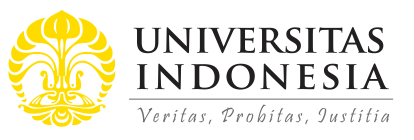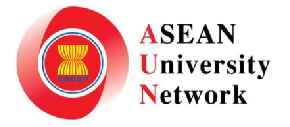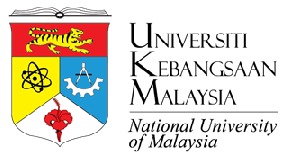
Abstract
Stunting, the inability to reach one's full potential, still remains common in Indonesia. As a result of stunting’s intergenerational consequences, many strategies have been conducted by both government and non-government organizations to tackle this issue, including nutrition-specific and sensitive interventions, with Integrated Health Service Post (Posyandu) revitalization as one of the key measures to provide valid, reliable, and up-to-date data to establish the early detection and management of stunting. Unfortunately, this role is sub-optimally performed due to the limited competence of the health volunteers (cadres) that correlates with the suppressed parents’ motivation to visit a Posyandu. Moreover, their difficulties are exaggerated by the weak reporting and supervising system. This study aimed to evaluate the cadres’ knowledge and practice change after a sequence of training to revitalize the Posyandu’s role. This quasi-experimental study involved treatment and control villages located in Babakan Madang Sub-District, Bogor District, from which 41 and 37 cadres participated, respectively: between August and November 2019. The treatment group received three consecutive months of structured training, which comprised different learning methods, namely, group discussions, role plays, games, and seminars about Posyandu and stunting management, maternal and child health, and nutritional assessment. The control group was only visited for observational activities. Changes in cadres’ knowledge and practices were collected using structured quantitative questionnaires and analysed using the Wilcoxon test. Both groups shared a considerably similar practice of Posyandu management, but a significant improvement in cadres’ knowledge was found in the intervention group after the training (p < 0.001) compared with the control group. Longer duration is needed to observe any behaviour change, as indicated by their practice of Posyandu management.
References
Abebe, Z., Haki, G. D., & Baye, K. (2016). Health Extension Workers’ Knowledge and Knowledge-Sharing Effectiveness of Optimal Infant and Young Child Feeding Are Associated with Mothers’ Knowledge and Child Stunting in Rural Ethiopia. Food and Nutrition Bulletin, 37(3), 353–363. https://doi.org/10.1177/0379572116651209
Atin, A. I. (2018). Hasil Survey Pengetahuan Ibu terkait Kesehatan Ibu dan Anak di Desa Babakan Madang, Kecamatan Babakan Madang, Kabupaten Bogor Tahun 2018. Universitas Indonesia.
Bidayati, U. (2017). Commitment , Motivation, and Performance of Posyandu Cadres. 131(International Conference of Organizational Innovation (ICOI)), 93–97.
https://doi.org/10.2991/icoi-17.2017.27
Black, R. E., Allen, L. H., Bhutta, Z. A., Caulfield, L. E., de Onis, M., Ezzati, M., … Rivera, J. (2008). Maternal and child undernutrition: global and regional exposures and health consequences. The Lancet, 371(9608), 243–260.
https://doi.org/10.1016/S0140-6736(07)61690-0
Grantham-McGregor, S., Cheung, Y. B., Cueto, S., Glewwe, P., Richter, L., & Strupp, B. (2007). Developmental potential in the first 5 years for children in developing countries. Lancet, 369(9555), 60–70. https://doi.org/10.1016/S0140-6736(07)60032-4
Habicht, J. P. (2008). Malnutrition kills directly, not indirectly. The Lancet, 371(9626), 1749–1750. https://doi.org/10.1016/S0140-6736(08)60755-2
Hoko, S. S., Kurniawati, N. D., & Maryanti, H. (2019). Hubungan Pengetahuan Dan Sikap Kader Posyandu Tentang Tugas Pengembangan Kader Terhadap Tindakan Penemuan Kasus Tb Paru Di Puskesmas Lite. Indonesian Journal of Community Health Nursing, 2(2), 50–56. https://e-journal.unair.ac.id/IJCHN/article/view/11918/6853
Iswarawanti, D. N. (2010). Posyandu Cadres: Their Roles and Challenges in Empowerment for Improving Children Nutritional Status in Indonesia. Jurnal Manajemen Pelayanan Kesehatan, 13(4), 169–173.
Kosasih, C. E., Purba, C. I. H., & Sriati, A. (2018). Upaya Peningkatan Gizi Balita Melalui Pelatihan Kader Kesehatan Pendahuluan Keadaan gizi masyarakat Indonesia pada saat ini masih belum menggembirakan . Berbagai masalah gizi seperti : gizi kurang dan gizi buruk , kekurangan vitaminA , anemia gizi besi ,. 1(1), 90–100.
Luca, J., & Heal, D. (2006). Is role-play an effective teaching approach to assist tertiary students to improve teamwork skills?. ASCILITE 2006 - The Australasian Society for Computers in Learning in Tertiary Education, 1(2006), 473–477.
https://ro.ecu.edu.au/ecuworks/2263/
Megawati, G., & Wiramihardja, S. (2019). Peningkatan Kapasitas Kader Posyandu dalam Mendeteksi dan Mencegah Stunting di Desa Cipacing Jatinangor. Jurnal Aplikasi Ipteks Untuk Masyarakat, 8(3), 154–159. https://doi.org/10.24198/dharmakarya.v8i3.20726
Ministry of Health Republic of Indonesia. (2007). Basic Health Survey.
Ministry of Health Republic of Indonesia. (2011). General Guidelines for Posyandu Management. http://puskesmas-oke.blogspot.com/2009/04/pengelolaan-posyandu-lansia
Ministry of Health Republic of Indonesia. (2013). Basic Health Survey.
Ministry of Health Republic of Indonesia. (2018). Basic Health Survey.
Mudjianto, T. T., Hidayat, T. S., Hermina, Luciasari, E., Afriansyah, N., & Fuada, N. (2003). Faktor-Faktor Positif Untuk Meningkatkan Potensi Kader Posyandu Dalam Upaya Mencapai Keluarga Sadar Gizi (KADARZI). Nutrition and Food Research, 26(2), 2003.
Müller, O., & Krawinkel, M. (2005). Malnutrition and health in developing countries. Cmaj, 173(3), 279–286. https://doi.org/10.1503/cmaj.050342
Parmar, S. M., & Taylor, R. (2010). Health Promotion & Behavioural Change Theory. 1–14.
Positive Deviance Resource Centre (PDRC). (August, 2015). Kegiatan Monitoring Revitalisasi Posyandu di Sumatera Selatan. http://www.pdrc.or.id/index.php/pdrc-news/137-kegiatanmonitoring-%0Arevitalisasi-posyandu-di-sumatera-selatan-agustus-2015
Putri, P. N. (2019). Environmental Determinants of Stunting in Children 6-59 Month and The Mapping in Babakan Madang Sub-district, Bogor District in 2019. Universitas Indonesia.
Rahmawati, S. M., Madanijah, S., Anwar, F., & Kolopaking, R. (2019). The effectiveness education of counseling of infant and young child feeding as intensive to improve counseling performance of Posyandu cadres in Bogor, Indonesia. International Journal of Community Medicine and Public Health, 6(6), 2280–2288.
Rokx, C., Subandoro, A., & Gallagher, P. (2018). AIMING HIGH: Indonesia’s Ambition to Reduce Stunting. Washington DC: International Bank for Reconstruction and Development/The World Bank.
The Health Foundation. (2012). Evidence Scan: Quality Improvement Training for Healthcare Professionals. London.
The National Team for the Acceleration of Poverty Reduction (TNP2K). (2018). Gerakan Nasional Pencegahan Stunting dan Kerja Sama Kemitraan Muli Sektor. Jakarta.
Tumbelaka, P., Limato, R., Nasir, S., Syafruddin, D., Ormel, H., & Ahmed, R. (2018). Analysis of Indonesia’s community health volunteers (kader) as maternal health promoters in the community integrated health service (Posyandu) following health promotion training. International Journal Of Community Medicine And Public Health, 5(3), 856-863.
https://doi.org/10.18203/2394-6040.ijcmph20180462
Van Den Broucke, S. (2014). Needs, norms and nudges: The place of behaviour change in health promotion. Health Promotion International, 29(4), 597–600.
https://doi.org/10.1093/heapro/dau099
Vorster, H. H., & Kruger, A. (2007, September). Poverty, malnutrition, underdevelopment and cardiovascular disease: A South African perspective. Cardiovascular Journal of Africa, Vol. 18, pp. 321–324.
WHO. (2018). Reducing Stunting in Children: Equity Considerations for Achieving Global Nutrition Target 2025.
Yustika, F. D. (2019). Faktor Risiko Kejadian Stunting pada Balita Usia 24- 59 Bulan di Kecamatan Babakan Madang, Bogor Tahun 2018 (Analisis Data Sekunder). Universitas Indonesia.
Zainafree, I., & Mardiana. (2015). IBM Revitalisasi Posyandu Desa Tambakrejo. Rekayasa: Jurnal Penerapan Teknologi dan Pembelajaran, 13(2), 90–106.
Recommended Citation
Rahmawati, Nurul Dina and Sartika, Ratu Ayu Dewi
(2020).
Cadres’ role in Posyandu revitalization as stunting early detection in Babakan Madang Sub-District, Bogor District.
ASEAN Journal of Community Engagement, 4(2), 485-499.
Available at: https://doi.org/10.7454/ajce.v4i2.1055







